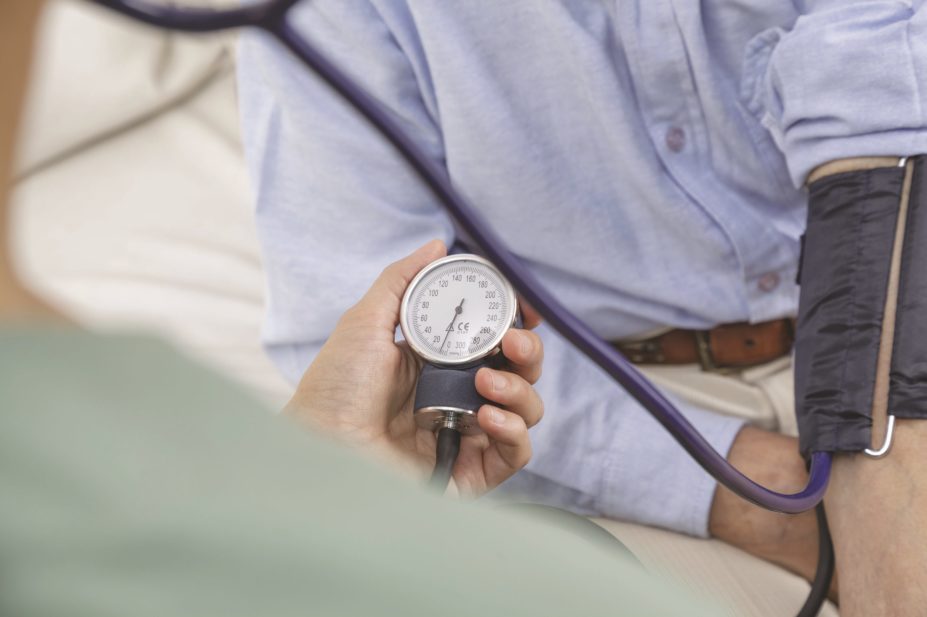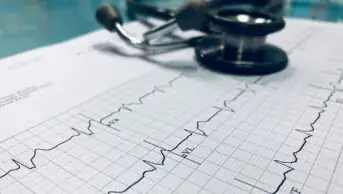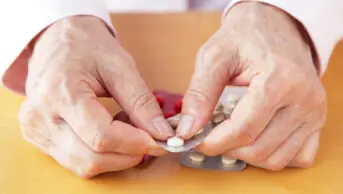
Shutterstock.com
A pharmacist-led programme to identify patients with atrial fibrillation (AF) may have prevented up to 90 AF-related strokes across 23 clinical commissioning groups (CCGs), NHS England has said.
The CCGs were given £9m in May 2019 to enable specialist pharmacists to identify patients with AF who might benefit from anticoagulant medication.
Patients were identified through a review of GP records by specialist anticoagulation pharmacists or anticoagulation nurses. These patients were then discussed with the GP through a virtual clinic, recommending a treatment plan for each patient. The GP would then discuss this plan with the patient.
At launch, the ‘AF demonstrator programme’ aimed to identify up to 20,000 people with high-risk AF that were not taking anticoagulants by March 2020 and estimated that the programme could prevent up to 700 strokes in that time.
In a blog written for NHS England, Helen Williams, national specialty adviser for cardiovascular disease prevention at NHS England and Improvement, said a full evaluation of the programme was yet to be published.
However, she said that, based on Quality Outcomes Framework results for 2019–2020, the 23 CCGs showed “an encouraging increase in the rate of anticoagulation of 3.45 percentage points in those with a record of a CHA2DS2-VASc score of two or more, compared to 1.38 percentage points for all other CCGs across England”.
Accounting for the growth in the AF anticoagulation rates seen in other CCGs, she estimates that the programme may have resulted in an additional 2,300 people with AF being prescribed anticoagulants across the 23 CCGs, “which could prevent up to 90 AF-related strokes”.
The estimates account for changes in CCG boundaries by looking at the same GP practices over the programme’s duration.
The programme’s findings come after NHS England launched a pilot across seven primary care networks to run a hypertension case-finding programme from 1 November 2020. Patients with hypertension are more likely to have atrial fibrillation.
Pharmacies participating in the pilot will “opportunistically measure the blood pressure of adults” aged over 40 years who have previously not been diagnosed with high blood pressure and those aged under 40 years with a recognised family history of hypertension.
GP practices can also specify certain adults who should have their blood pressure measured as part of the service.
Patients with a blood pressure of 135/85mmHg or higher, but lower than 180/120mmHg, will be offered Ambulatory Blood Pressure Monitoring (ABPM) either from the pharmacy or through a local diagnostic pathway, if the pharmacy does not have the necessary equipment.
If a patient is found to have a blood pressure of 180/120mmHg or higher they will be urgently referred to see a GP on the same day, or to go to A&E if their practice is closed.
Patients with a blood pressure of lower than 90/60mmHg who experience regular fainting or falls, or those who have an irregular pulse, will also be referred to a GP or A&E on the same day.
As part of the service, pharmacies will be given an ABPM device to loan out to patients with high blood pressure.
Pharmacies will be paid £5 for each service user receiving a blood pressure check, an additional £16 per patient provided with an ABPM device, and £120 per pharmacy to support training and set up costs.
The cost of equipment will also be reimbursed to the pharmacy.
Pharmacies in Chesterfield and Dronfield Primary Care Network (PCN), Darlington PCN, Dudley Netherton PCN, Newham Central PCN, North Newham PCN and Urban Health PCN are piloting the service until 31 March 2021.
You may also be interested in

New class of anticoagulant found to ‘overwhelmingly’ reduce bleeding events in patients with atrial fibrillation

Nearly 92% of atrial fibrillation patients in England anticoagulated, says NHS adviser
